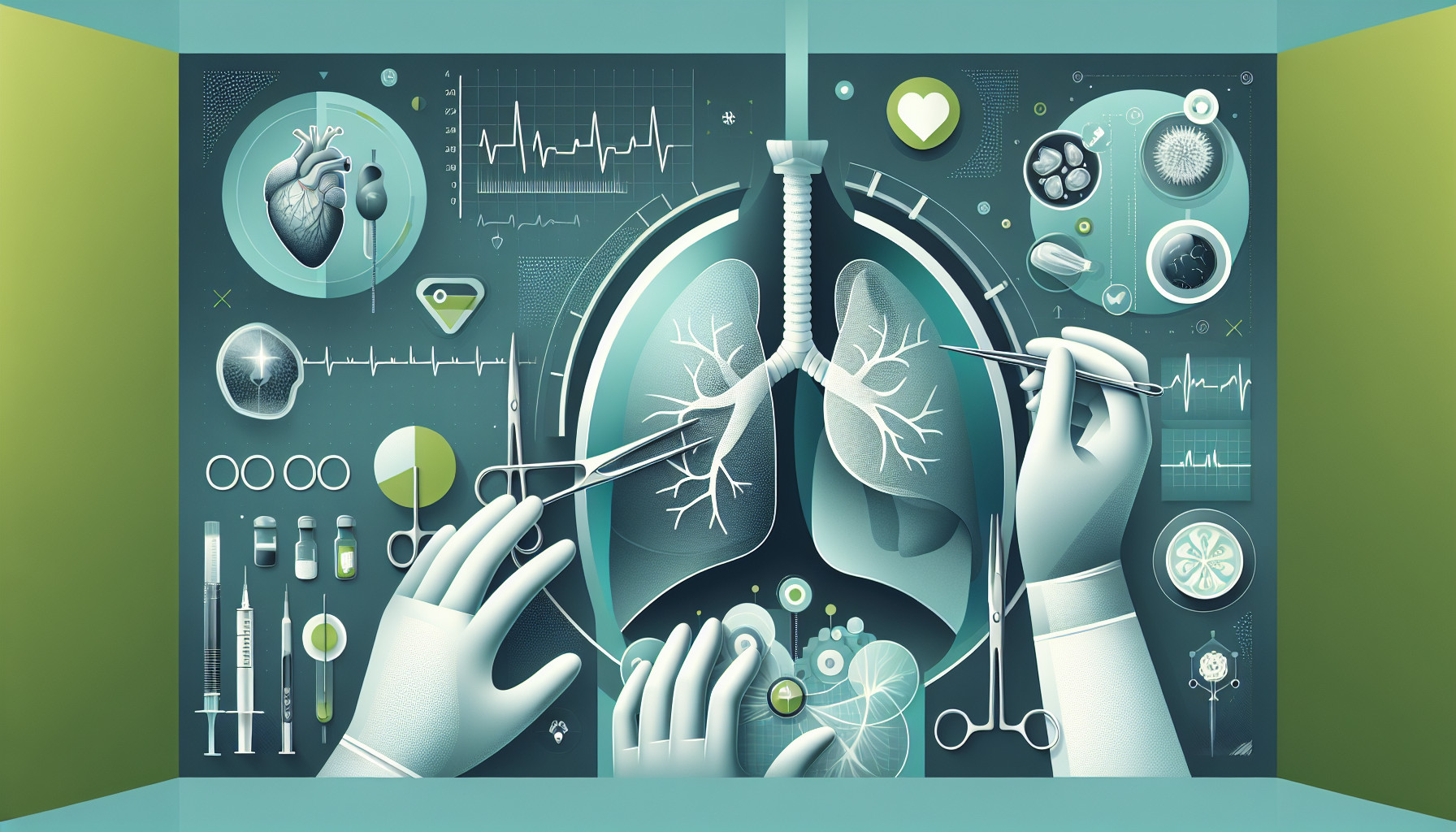Our Summary
This research paper discusses the development of lung transplantation as a life-saving treatment for patients with severe lung failure who can’t be helped by other treatments. As survival rates improve, the number of patients with health issues before and after their transplant is growing. The paper suggests that doctors who specialize in transplant care need to work closely with other doctors to provide the best care for these patients.
This includes referring patients for a transplant evaluation as soon as possible, helping manage other health issues to prepare patients for their transplant, taking care of any new health problems after the transplant, making sure patients get their vaccines, checking for cancer, and giving advice on how to live a healthy lifestyle. This is all meant to increase the chances of a successful transplant.
The paper aims to give an overview of how to best take care of patients who are potential candidates or have already received a lung transplant. This information is intended for doctors who don’t specialize in transplant care and other healthcare providers.
FAQs
- What is the purpose of a lung transplantation?
- What is the role of non-transplant care providers in the care of lung transplant candidates and recipients?
- What are some common post-transplant medical comorbidities that need management in lung transplant recipients?
Doctor’s Tip
One helpful tip a doctor might tell a patient about lung transplant is to follow a strict medication regimen as prescribed by your transplant team. Adherence to immunosuppressive medications is crucial to prevent rejection of the new lung and maintain long-term transplant success. Missing doses or adjusting medications without consulting your healthcare provider can have serious consequences. It is important to communicate openly with your transplant team about any side effects or concerns you may have with your medications.
Suitable For
Patients who are typically recommended for lung transplant are those with end-stage respiratory failure that is unresponsive to other medical or surgical interventions. These patients may have conditions such as pulmonary fibrosis, cystic fibrosis, chronic obstructive pulmonary disease, or pulmonary hypertension. Additionally, patients with severe lung disease who have a poor prognosis and limited treatment options may also be considered for lung transplant. It is important for these patients to be evaluated by a transplant center to determine their eligibility and candidacy for the procedure.
Timeline
Before lung transplant:
- Diagnosis of end-stage respiratory failure and referral to a transplant center
- Evaluation by a transplant team to determine candidacy for transplant
- Pretransplant workup including medical tests, imaging, and consultations with various specialists
- Listing on the transplant waiting list
- Wait for a suitable donor organ
- Surgery to receive the lung transplant
After lung transplant:
- Recovery in the hospital and monitoring for complications
- Initiation of immunosuppressive medications to prevent organ rejection
- Follow-up care with the transplant team for monitoring and adjustments to medications
- Pulmonary rehabilitation to improve lung function and physical conditioning
- Management of posttransplant complications such as infection, rejection, and organ dysfunction
- Long-term follow-up for monitoring of lung function, medication management, and overall health
- Counseling on lifestyle changes, including diet, exercise, and smoking cessation, to optimize long-term outcomes.
What to Ask Your Doctor
- What is the success rate of lung transplants at this facility?
- What is the waiting time for a lung transplant?
- What are the potential risks and complications of a lung transplant?
- How long is the recovery process after a lung transplant?
- What medications will I need to take after a lung transplant and what are the potential side effects?
- How often will I need to follow up with my transplant team after the surgery?
- What lifestyle changes will I need to make after a lung transplant?
- How can I prevent infections after a lung transplant?
- What are the signs of rejection and what should I do if I experience them?
- Are there any support groups or resources available for lung transplant patients?
Reference
Authors: Adegunsoye A, Strek ME, Garrity E, Guzy R, Bag R. Journal: Chest. 2017 Jul;152(1):150-164. doi: 10.1016/j.chest.2016.10.001. Epub 2016 Oct 8. PMID: 27729262
